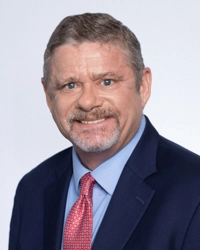We’ve all seen it… The PD in a case rates to something reasonable and all is well, until applicant’s attorney begins to rattle the Ogilvie saber. Either expressly or implicitly, counsel makes known that—unless you concede to some ridiculous demand —AA will retain a “DFEC expert” and stick you with the bill.
Is it time to settle? Get the sword and split the baby?
Heck no!
Don’t believe the baloney… you’ve got (very) little to worry about when it comes to “DFEC expert” bills and liens.
Really!
What does Labor Code §5811 really say?
If you’ve faced the threat of “DFEC expert” bills, you have inevitably received a letter from AA referencing Labor Code §5811 as proof positive that you—the defendant—will be stuck paying the fiddler… er, um…. the “DFEC expert”!
Not so fast!
Interestingly, every AA letter I’ve ever reviewed cites Labor Code §5811 for the proposition that the defense pays (and pays, and pays), but those same letters never quote the labor code.
Can you guess why?
IT DON’T SAY WHAT AA SAYS IT SAYS!
§LC 5811(a) “…In all proceedings…before the appeals board, costs as between the parties may be allowed by the appeals board.” (Underline added)
“[M]ay” does not mean “must”… no matter how emphatically AA argues to the contrary!
How Important Is This?
Less than a week after the WCAB issued its first major en banc decision relating to rebutting the diminished future earning capacity (DFEC) 1 Workcompcentral published an article entitled “‘Bargaining Chip’ Discovered In En Banc Ruling”, which quoted one source as arguing that “the expense of the [DFEC] expert becomes a bargaining chip for the applicants.”
Five years later, that observation has turned out to be remarkably prescient. Indeed, “DFEC expert” fees have gotten so out of control that Assemblyman Richard Pan has introduced AB 1168 to amend Labor Code §5307.7 by requiring the Division of Workers’ Compensation to adopt a fee schedule establishing maximum fees for such “experts” by no later than January 1, 2013.
I have seen bills issued at $250, $300 and even $350 an hour, totaling thousands, coming from “DFEC experts.”
Haven’t yet seen such a bill/lien?
You will!
What can you do?
Glad you asked…
Fighting “Experts” Bills/Liens
Throughout this article, I have used (and will continue to use) quotation marks around the phrase “DFEC expert.”
Why?
Simple… I ain’t stipulating to the “expert” status of any so-called “DFEC expert” (and neither should you…EVER!).
Unless/until it is ruled that applicant counsel’s “expert” really is an “expert,” that individual’s reports, testimony, and the like are nothing more than opinions. I’ve got lots of opinions… I’ll bet you do, too. BUT unless you, I and—more relevant to our discussion—AA’s “expert” proves he/she qualifies as an “expert,” he/she is not entitled to reimbursement!
“But, but, but…”, you stammer, “AA’s expert is used around the state. This guy testifies everywhere. And he wins a lot. Isn’t he an expert?”
NO!
The WCAB’s en banc opinion, Costa II, addressed this issue directly: “[T]he qualifications of each…expert must…be determined on a case by case basis.” 2
TAKE AWAY: Always object to the “expert” status of any expert identified by AA who begins issuing bills and liens in your direction.
Remaining Objectionable:
While you’re issuing your lien objection and questioning the so-called “expert’s” true status as an “expert,” add a second objection. Specifically, cite Labor Code §4621(a), which provides:
“…the employee…shall be reimbursed for…medical-legal expenses…reasonably, actually, and necessarily incurred…The reasonableness of, and necessity for, incurring these expenses shall be determined with respect to the time when…actually incurred.”
Let’s re-read this statute, but from a defense perspective!
Even if lien claimant is—eventually—able to prove to the WCJ’s satisfaction he/she is an “expert,” the lien/bill goes unpaid if the expense was…
- not “reasonably…incurred….[at] the time when…actually incurred”,
- not “actually…incurred….[at] the time when…actually incurred”, and/or
- not “necessarily…incurred….[at] the time when…actually incurred”
Given that most “DFEC expert” reports I’ve had the pleasure to review have included serious flaws in methodology, they are invariably subject to some or all of these objections.
Still Not Sure What To Do?
Based on the sampling of “DFEC expert” reports reviewed at Bradford & Barthel, it’s a very good bet that most—if not all—of the “DFEC expert” bills/liens you receive will be subject to the (1) non-expert, and/or (2) LC §4621(a) arguments, so be sure to use the ole standbys at every turn.
Still not quite sure what to with a DFEC issue? Give me a call… I’ll bet you a nickel you’ve got a winning hand for the defense!
Donald R. Barthel is a founding partner of Bradford & Barthel, LLP, as well as B&B’s Rating & File Consultation Services. Mr. Barthel is an acknowledged expert regarding the AMA Guides (5th) and the 2005 PDRS. Much of his time is dedicated to teaching these topics to adjusters, human resource directors, employer representatives, attorneys, and physicians throughout California and the United States. Have a PDRS or AMA Guides question? Call Don Barthel at (916) 996-1263 or email him at dbarthel@bradfordbarthel.com.
1 Costa v. Hardy Diagnostic and State Compensation Insurance Fund (12/06/2006) 71 CCC 1797)
2 Costa v. Hardy Diagnostic (11/13/07) 72 CCC 1492)
Viewing this website does not form an attorney/client relationship between you and Bradford & Barthel, LLP or any of its attorneys. This website is for informational purposes only and does not contain legal advice. Please do not act or refrain from acting based on anything you read on this site. This document is not a substitute for legal advice and may not address every factual scenario. If you have a legal question, we encourage you to contact your favorite Bradford & Barthel, LLP attorney to discuss the legal issues applicable to your unique case. No website is entirely secure, so please be cautious with information provided through the contact form or email. Do not assume confidentiality exists in anything you send through this website or email, until an attorney/client relationship is formed.


